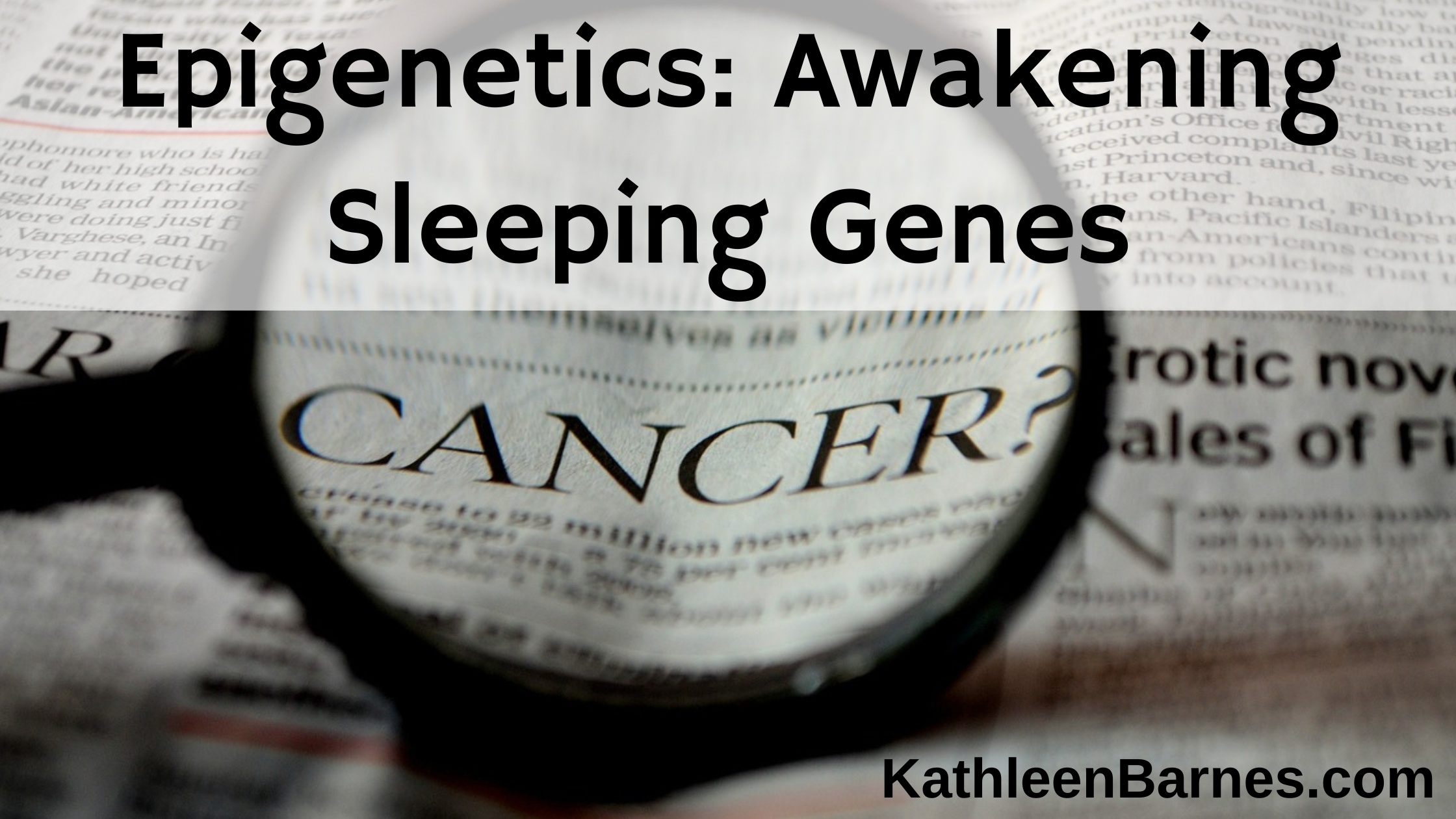This is an excerpt from one of the most important books of our time, Curcumin, Nature’s Answer to Cancer by Dr. Ajay Goel.
Read more from me about curcumin ==> https://kathleenbarnes.com/category/curcumin/
 Does cancer run in your family? Alzheimer’s? Diabetes? Diseases that run in families are common, but you might be surprised to learn that these diseases are rarely hereditary. This is where the new science of epigenetics comes into play.
Does cancer run in your family? Alzheimer’s? Diabetes? Diseases that run in families are common, but you might be surprised to learn that these diseases are rarely hereditary. This is where the new science of epigenetics comes into play.
Hereditary means a trait or feature has been passed from parent to child. Your blue eyes or curly hair or even your musical talent are all due to the genes you inherited from both of your parents. Heredity explains why cats always give birth to kittens and not puppies.
Less than 2 to 5% of all cases of cancer are hereditary, meaning just a few cancers are the result of damaged cells passed on from one generation to the next. This is good news because it means you have much more control over your cancer risk than perhaps you ever thought possible.
More than 95% of cancers are non-hereditary, or sporadic in nature. They occur as part of the aging process.
We are now recognizing that majority of cancers are in fact largely influenced by the dietary and lifestyle choices we all make every single day and throughout our lifetimes. These factors have a profound impact on the 20,000-plus genes in our cells and determine the behavior of genes that control various behaviors, including cancer growth. In other words, as benign as it may seem, diet has a huge bearing on our risk of cancer and other dread diseases. Our eating habits also have a major influence over the genes that protect us from cancer.
For example, do you live in a culture that drinks green tea at every meal? That is cancer protective. Do you live in a culture where everyone smokes cigarettes? That increases cancer risk.
Epigenetics and your choices
Enter a relatively new field of science called epigenetics. This complex science can be explained relatively easily: Simply put, your diet and lifestyle influence how your genes work and dictates whether they are behaving well or poorly. Epigenetics explains the continuously changing behavior of our genes in response to various environments.
Everything your mother did before and during her pregnancy, and everything you do from the day you are born, everything you eat, drink and are exposed to in your environment has an effect on your genes.
As you age and grow, it is natural that some of the genes may get turned off — or go to sleep — as a consequence of eating habits, exercise regimens and toxic environmental stresses. Other genes that encourage uncontrolled cell growth may get turned on, thus promoting cancer growth.
When you don’t eat correctly or exercise regularly and you’re exposed to toxins that are everywhere, including in the air we must all breathe and the water we must all drink, cancer-preventing genes can go to sleep on the job, and allow diseases to get a foothold.
Unlike the small risk for hereditary cancers, cancer-related genes that are epigenetically controlled and are directly related to lifestyle choices are responsible for more than 95% of all cancers.
But here’s the good news, in fact, the great news: Epigenetic changes are reversible. Unlike hereditary cancers where you have inherited a permanently defective gene, epigenetically affected genes can be easily corrected. Those changes can begin the moment you start making wiser lifestyle choices.
This is wonderful news. It highlights the promise that cancer is not our destiny. We actually have significant control on how our genes behave, as long as we are willing to make positive diet and lifestyle choices.








Hi Kathleen,
While drinking green tea may be healthy. I once heard a report on NPR about how green tea is dried in China via exhaust from diesel trucks!! At Gaia we then tested our organic green tea from China and found that it had lead and other toxic matter! So, probably better to buy green tea from India.
Also, I recently heard that turmeric could cause kidney stones! I guess moderation is best.
Hope you’re safe from the fires!!